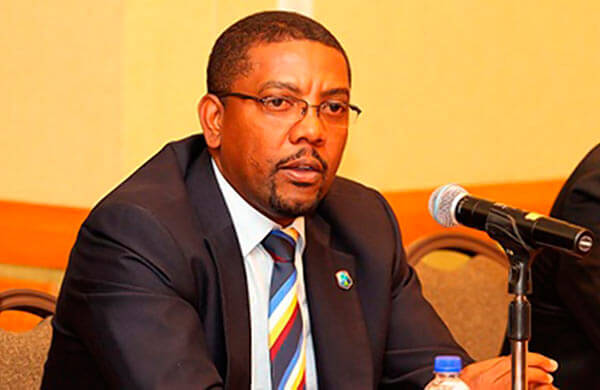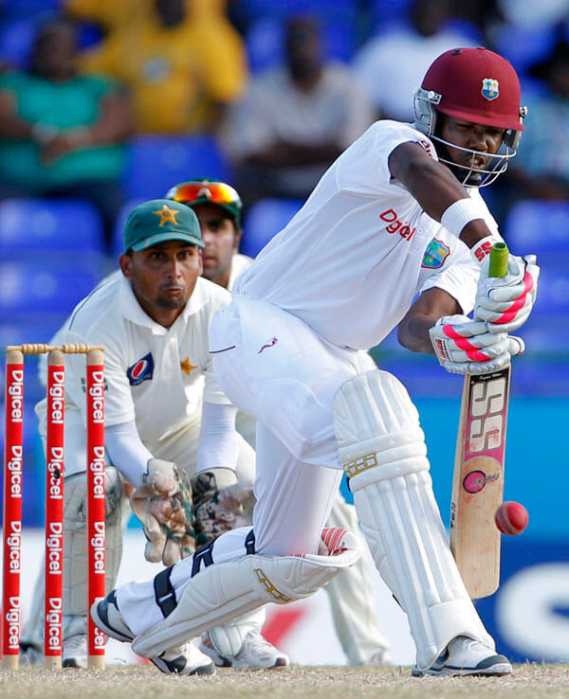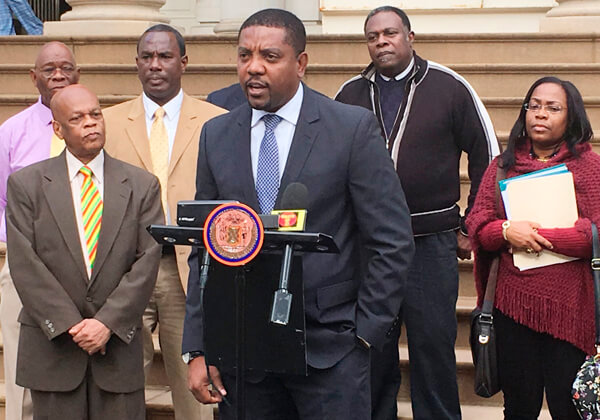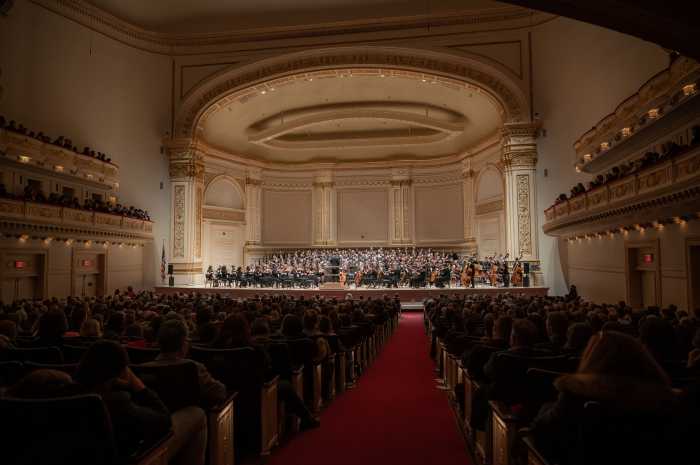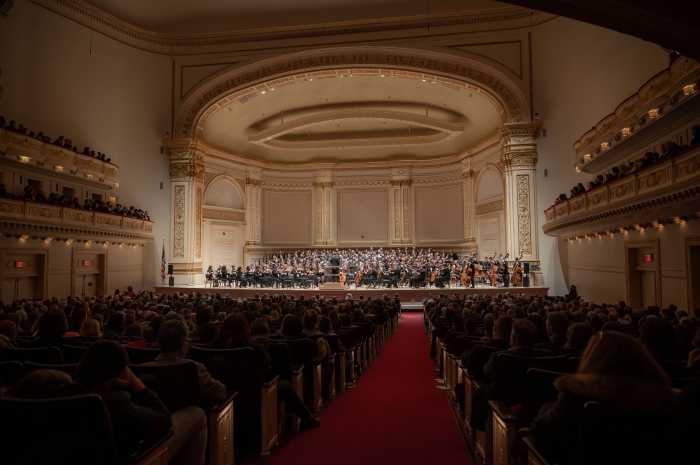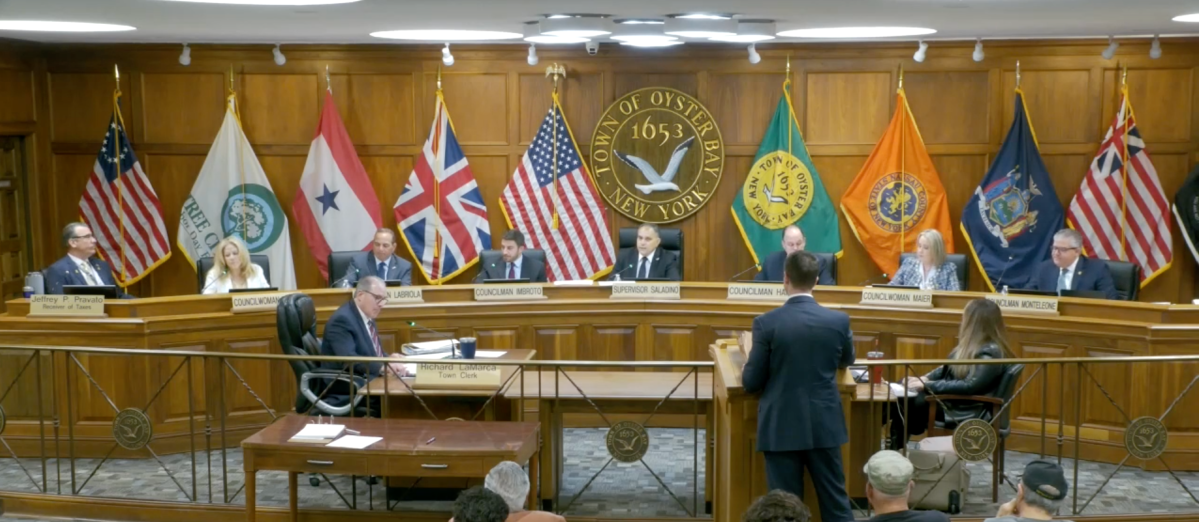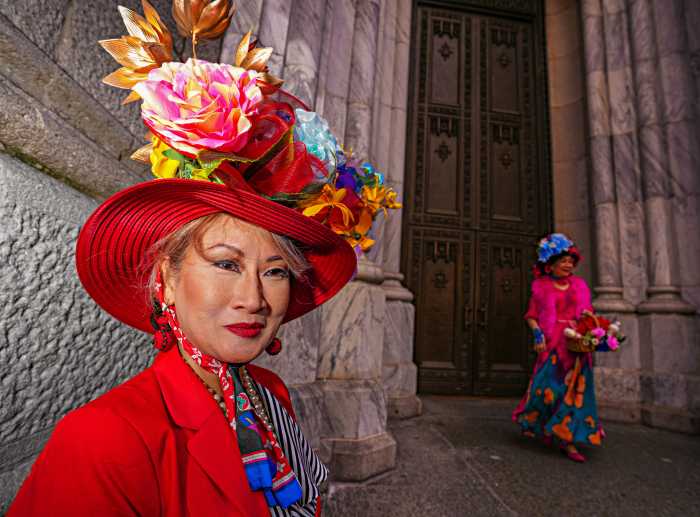“WICB needs to take responsibility for the fall for WI cricket.”-Ramnaresh Sarwan, former WI captain
“The West Indies Cricket Board is the most unprofessional in the world…Cameron is ‘immature’, ‘arrogant’ and ‘not having West Indies cricket at heart’…a dictator… I think we had enough as players.”— Dwayne Bravo
“When is the last time a critic paid one your bills? Always remember that when you start to give them your energy.”-Dave Cameron, President of WICB, now CWI (Cricket West Indies)
A few years ago, Sir Garfield Sobers, Sir Viv Richards, Wes Hall and Andy Roberts, uniting under the umbrella banner of Cricket Legends, met with Grenada Prime Minister Keith Mitchell, chairman of the Prime Ministerial Committee on the Governance of West Indies Cricket, which had appointed the CARICOM cricket review panel in the wake of yet another crisis that emerged following the West Indies’ withdrawal from India’s tour in October 2014.
“During the last two decades, many different presidents and CEOs have led the West Indies Cricket Board (WICB) and yet, its performance has declined steadily with each passing year,” the Legends said in a joint media release.
“The board is an oligarchic structure that considers itself answerable to no one but itself. It is one of the few sporting institutions that have remained virtually unchanged in attitude and structure in the last 70 years or more.” Roger Harper, Charlie Griffith, Deryck Murray, (who was also member of the CARICOM review panel), leg-spinner Dinanath Ramnarine, (previous president of the West Indies Players Association) and opening batsman, Desmond Haynes were only a few former stars who concurred with CARICOM’s recommendation that the WICB become accountable to CARICOM authorities, and that the board should “undergo structural adjustment.”
Recently, a CWI press release recently confirmed that off-spinner Sunil Narine, batsman Darren Bravo and all-rounders Kieron Powell and Andre Russell, all refused to proudly don their West Indies flannels, preferring to participate in the Pakistan Super league instead of taking part in the ICC World Cup qualifiers in Bangladesh in March. The World Cup is cricket’s biggest stage. Former captains and star batsmen Chris Gayle, Ronnie Sarwan and the iconic Sir Viv Richards, Darren Sammy, and many other players have condemned similar complaints about the Board’s callous treatment of players in the past.
Not only has the WICB / CWI shown serial disrespect for great players like Sobers, Hall, Kanhai, Gibbs, Lloyd, Chanderpaul and others over the years, but their humiliation have become more pronounced with each succeeding generation of cricketers. Some quarters have complained that “some players have too much egos, and behave like mercenaries.” The grievances on both sides must be heard and addressed.
The major complaint is that “the board has been utilizing the ‘big stick’ approach in dealing with matters, and not having proper communication with all stakeholders, including the players.” Sarwan exposed his fallout with the WICB and Ottis Gibson, saying that Gibson verbally attacked him and dropped him, destroying him mentally. This led to his now famous quote, “I didn’t know my front foot from my back foot,” a situation that caused him to flee from the game and not leave his house or his room for days, until the point when his father had an emotional breakdown over worry for his son. “I would not answer the call of the WICB if picked now,” is reflective of a seriously broken spirit.
Sarwan’s disgust that “The CWI or WICB whatever name y’all come under, all the administrators, from 1990 onwards should go and play now and help the team qualify for the next World Cup,” is symptomatic of the fact that West Indies cricket is imploding, and not keeping, consolidating, unifying and managing its individual talents. His complaint that, “Now imagine the great WICB asking players to play. I would like to laugh but out of respect for the Caribbean people I won’t,” demands immediate action by CARICOM governments to address the problems in our cricket.
CARICOM will do well to remind itself what cricket supremacy means in a global context to all Caribbean brothers and sisters, sons and daughters. It is best summarized by the former Prime Minister of Jamaica, Michael Manley, “The West Indies are Third World countries, but we belong and are in the first World of Cricket.” Cricket is not only a religion in the Caribbean, but it best defines the region in the highest context. Regional political integration has followed cricket as a unifying and defining force.
In a deeper psychological and historical context, a West Indian cricketer’s artistry and flamboyance is the product of the post-colonial era, where the psyche is the celebration and liberation from the bondages of imperialism and colonialism. It is a celebration of freedom. Our glorious successes lift marginalized people from our daily burdens, and takes us to flights of pride over our collective achievements, living in the ecstatic comfort of the superlatives that always follow.
What cricket means to the typical Caribbean kid is best summarized by Nobel Laureate, Sir V. S. Naipaul, in The Middle Passage, pg. 44, “Cricket has always been more than a game in Trinidad. In a society which demanded no skills and offered no rewards to merit, cricket was the only activity which permitted a man to grow to his full stature and to be measured against international standards… The cricketer was our only hero-figure.”
Cricket is simply the lifeblood of the Caribbean, and our greatest adhesive force. C.L.R. James, the renowned cricket scholar, in his work Cricket in West Indian Culture, at pg. 119 aptly noted, “From its beginning to this day cricket in the West Indies has expressed with astonishing fidelity the social relations of the islands.” In his seminal work, Beyond a Boundary, James puts cricket in perspective when he wrote, “Cricket is first and foremost a dramatic spectacle. It belongs with the theatre, ballet, opera and the dance.”
Caribbean kids are still inspired to become world famous like Sir Garfield Sobers, Sir Learie Constantine, George Headley, Sir Frank Worrell, Brian Lara, Sir Viv Richards, Rohan Kanhai and other enduring West Indian icons so revered around the cricketing globe. They are the very embodiment of the West Indian dream, and inspirational figures.
In fact, sportsmanship and professionalism were intrinsic parts of a cricketer’s development as his ability to flick the ball off the legs, late cut or hook a bouncer off the eyebrows. They prepared the Caribbean person to take his or her place amongst the best in the world, as so many have done academically, in sports, and in every facet of life and endeavor itself.
Sarwan has called on the administrators of Cricket West Indies (CWI) to “pad up” and take the field to help the West Indies qualify for the 2019 ICC World Cup. While they may not take up that challenge, CARICOM must do so now to save West Indies cricket! We do not need another King Louis XIV, who, in tyrannical stupor, claimed, “the state is myself!” We must lower the curtains on this Shakespearian tragedy, or hit Cameron out of the ground, and usher in a new era, reminiscent of the golden years of West Indian cricket.
CWI has failed miserably to fulfill its Vision Statement “to establish and sustain West Indies cricket as the sporting symbol of the West Indies, and the West Indies team as the dominant team in international cricket,” and its Mission Statement, “to develop and promote West Indies cricket for the benefit and enjoyment of the West Indian people, its clients and other stakeholders by procuring a consistently high-quality, successful and international West Indian product.” Time to walk, Cameron!
Note: Albert Baldeo is a civil rights activist and community advocate, and his political efforts placed previously ignored minority communities like Richmond Hill and Ozone Park firmly on the political and economic map. As the president of the Baldeo Foundation and Queens Justice Center, he has continued to fight for equal rights, dignity and inclusion in the decision making process. He can be contacted at the Baldeo Foundation: AlBal


